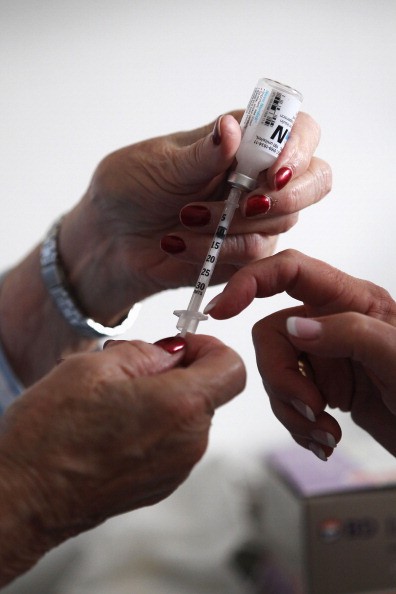
The results of a unique islet transplant procedure have shown a lot of promise for people who are suffering from type 1 diabetes.
On Sept 9, a team of doctors from the Diabetes Research Institute (DRI) of Miller School of Medicine in the University of Miami announced that a 43-year-old Texas woman who is part of the BioHub trial's pilot study is no longer using insulin injections following a minimally invasive transplant procedure on Aug 18.
Wendy Peacock was diagnosed with type 1 diabetes at 17. Previously known as juvenile diabetes, it is a medical condition characterized by the non-production of insulin as the immune system attacks the pancreas. Only 5% of the population has the disease. Since insulin is necessary to regulate glucose in the bloodstream, Wendy, like the other sufferers, injects insulin on a consistent basis.
Under the clinical trial, Peacock was given bio-engineered islet cells, the cells in the pancreas that are responsible for producing insulin. The lab-designed organ has the ability to copy how the original cells work, allowing the restoration of insulin.
For the surgery, the team used a "biodegradable scaffold," made from the patient's own plasma and an enzyme known as thrombin, in which the mini organ rests. By making the "scaffold" biodegradable, the risks of inflammatory responses that can possibly result to the damage of the transplanted and nearby organs are reduced.
The scaffolding is then attached to the omentum, a membranous layer of fatty tissues that are found within the abdominal area, covering the intestines and other organs. The scaffolding ensures the islets stay in place. Over the time, the scaffolding is absorbed into the bloodstream, leaving the islets intact. Blood vessels also form in the new organ, delivering the needed nutrients and oxygen that keep the organ alive.
Peacock, however, will still be provided with immune-suppressive drugs to avoid the possibility of organ rejection. But it will be given to select people, said the doctors. The team hopes that soon they can perform the transplantation that no longer requires immune suppression.
In the meantime, this has been the best outcome from any islet transplantation procedure. Previous techniques meant placing the islet in the liver, but the cells do not effectively thrive there and therefore die. The liver is also not a conducive place for the scaffolding that will hold the islet.



